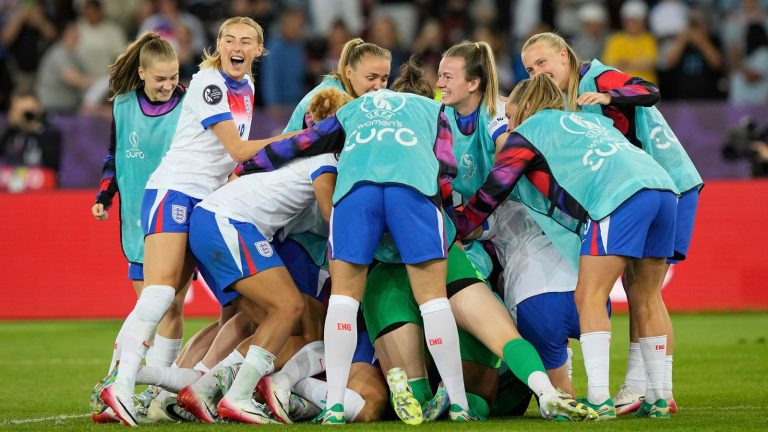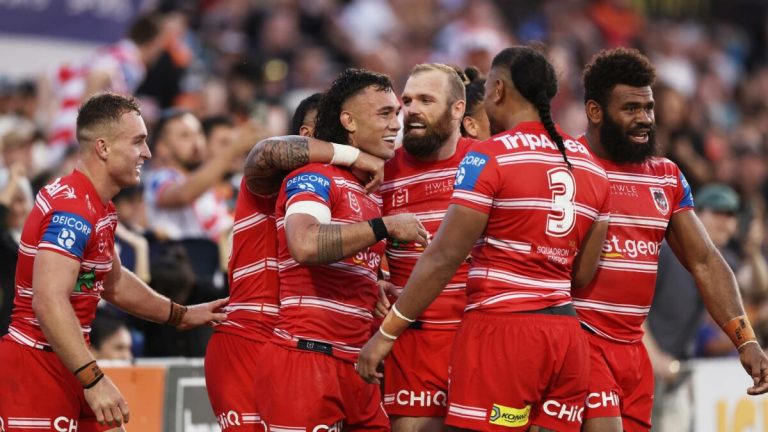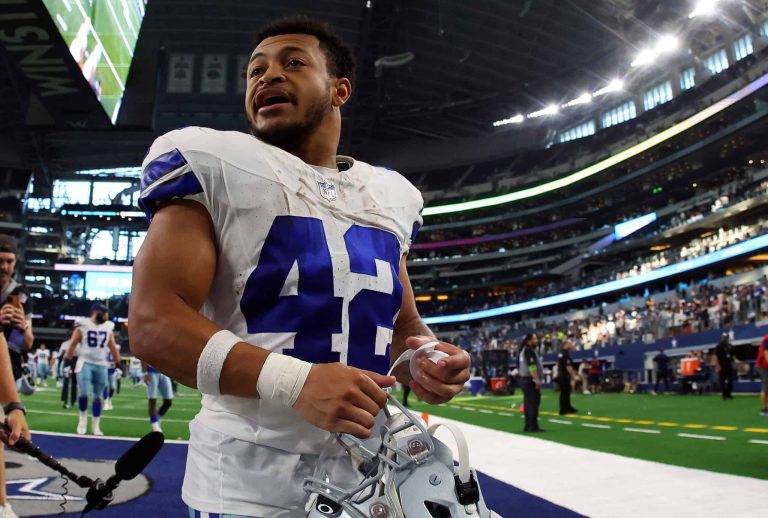In the world of sports, the phrase “we’re building for the future” is often used to justify a team’s current struggles. This sentiment is not unique to rugby; it’s echoed in various sports and industries. For instance, in the NBA, teams like the Philadelphia 76ers famously embraced “The Process,” a strategy focused on long-term success through short-term sacrifices and rebuilding.
Similarly, in the tech industry, startups often operate at a loss for years, emphasising growth and market share over immediate profitability. Drawing parallels to the Wallabies, the “young squad” mentality has been a cornerstone of their strategy since 2021. However, if we compare the 2021 and 2025 squads, it’s worth questioning whether this approach is still valid or if it’s time to shift expectations and capitalise on the experience gained over the past four years.

Hunter Paisami of the Reds is tackled during the tour match between Queensland Reds and British & Irish Lions at Suncorp Stadium on July 02, 2025 in Brisbane, Australia. (Photo by Bradley Kanaris/Getty Images)
In comparing the named squad from 2021 versus the 2025 squad released a couple weeks ago for the Fiji warmup game, I noticed the following;
In 2021 a squad of 40 was announced, in 2025 the squad size announced was 36.
23x Forwards were named in 2021, only 20 in 2025 – 9 of these players remain in the 2025 squad, namely;
– Allan Alaalatoa
– Angus Bell
– Fraser McReight
– David Porecki
– James Slipper
– Darcy Swain
– Taniela Tupou
– Rob Valetini
– Harry Wilson
If we cast the net wider to those not in the 2025 squad but just on the fringes, the following names still eligible for selection appear in 2021 squad;
– Lukhan Salakaia-Loto
– Pete Samu
– Seru Uru
– Lachlan Lonergan
17x Backs were named in 2021, only 16 in 2025 – 9 of these remain in the 2025 squad, namely;
– Filipo Daugunu
– Hunter Paisami
– Jake Gordon
– Len Ikitau
– Noah Lolesio
– Tate McDermott
– Nic White
– Tom Wright
– Andrew Kellaway (came into the squad late in 2021)
So why should we keep giving this team “space to succeed”, “time to gel”, “minutes to build cohesion” or “take it one game at a time” when the Wallabies have retained a significant core group of players from the 2021 squad, with 18 of the 36 players in the 2025 squad having been part of the setup since 2021? This continuity suggests that the team has had ample time to build cohesion and develop a shared understanding on the field. They have also matured through multiple seasons of Super Rugby Pacific.
While the “young squad” mentality was crucial in 2021 given the lack of experience in the squad, where only 8 players had double-digit test caps, the Wallabies’ 2021 squad had a total of 513 test caps, averaging 12.8 test caps per player, with 100 test caps belonging to James Slipper alone.
Providing room to develop players by giving them the opportunity to gain international Test experience was necessary. The 2021 season for the Wallabies was a mix of promising victories and challenging defeats. The highs, such as the wins over the Springboks and the series win against France, showcased the team’s potential. However, the struggles against the All Blacks and during the Northern Hemisphere tour highlighted the inexperience in the team. Let’s not forget the rotten run of injuries that plagued this team during 2021.
The situation in 2025 is different. The squad now has a total of 807 Test caps, averaging 22.4 caps per player. Many of these players are now seasoned professionals with multiple test caps. For instance, players like Allan Alaalatoa, James Slipper, Rob Valetini, Harry Wilson, and Fraser McReight in the forwards, along with Nic White, Noah Lolesio, Jake Gordon, and Tate McDermott in the backs, now have a wealth of experience that is invaluable in high-pressure situations.
We saw this on display in the Spring tour to the Northern Hemisphere last year. If this core group can remain, with the addition of new players having joined the squad in the last couple of years, then they should have all the ingredients to be very competitive for the World Cup on home ground in 2027.
While the “young squad” mentality served its purpose in the past, the current composition of the Wallabies squad suggests that it is time to evolve from this mindset. We, as fans, need to raise the bar of expectation, and the players, coaches, and staff must transition their mindset to that of winners, champions, heroes, warriors and conquerors in order to succeed.





